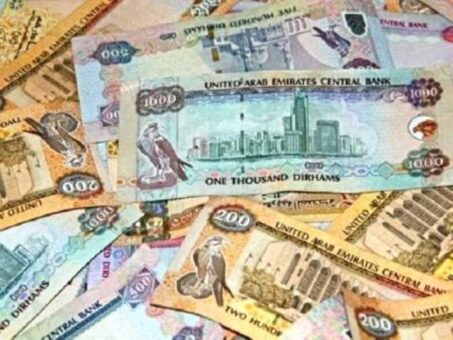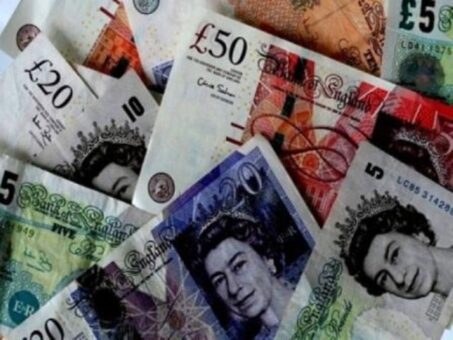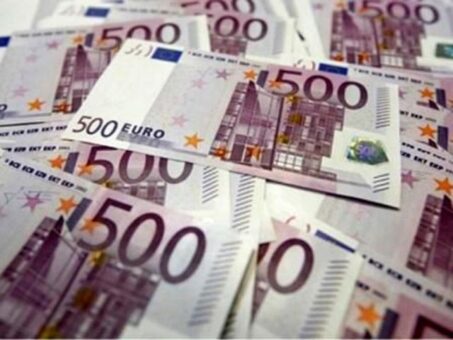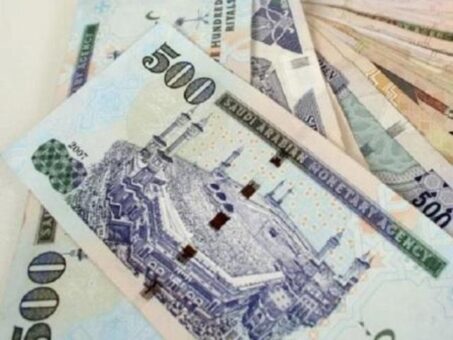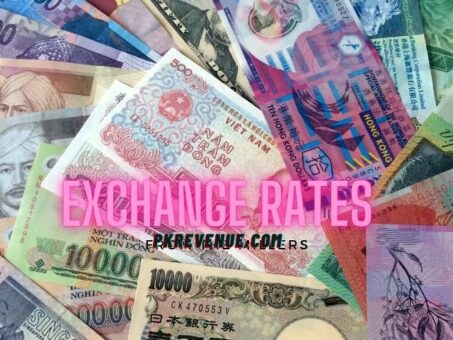KARACHI: Following are the rates of buying and selling of one US dollar (USD) in Pakistani Rupee (PKR) in the open market on October 30, 2022:
Buying: Rs 225.25 to the US Dollar
Selling: Rs 227.50 to the US Dollar
The buying rate means an exchange company or a bank buys foreign currency from a customer.
The selling rate means an exchange company or a bank sells the foreign currency from a customer.
The rate has been updated at 09:00 AM Pakistan Standard Time (PST).
The US Dollar /PKR parity depends on open market rates, they are set by the market forces based on foreign currency demand.
Pakistani Rupee to US Dollar on October 29, 2022
————————————————-
Pakistani Rupee to Saudi Riyal on October 30, 2022
KARACHI: Following are the rates of buying and selling of one Saudi Riyal (SAR) in Pakistani Rupee (PKR) in the open market on October 30, 2022:
Buying: Rs 59.80 to the Saudi Riyal
Selling: Rs 60.40 to the Saudi Riyal
The buying rate means an exchange company or a bank buys foreign currency from a customer.
The selling rate means an exchange company or a bank sells for foreign currency from a customer.
The rate has been updated at 09:00 AM Pakistan Standard Time (PST).
The Saudi Riyal /PKR parity depends on open market rates, they are set by the market forces based on foreign currency demand.
Pakistani Rupee to Saudi Riyal on October 29, 2022
————————————————-
Pakistani Rupee to Euro on October 30, 2022
KARACHI: Following are the rates of buying and selling of one Euro (EUR) in Pakistani Rupee (PKR) in the open market on October 30, 2022:
Buying: Rs 224.40 to the Euro
Selling: Rs 226.70 to the Euro
The buying rate means an exchange company or a bank buys foreign currency from a customer.
The selling rate means an exchange company or a bank sells for foreign currency from a customer.
The rate has been updated at 09:00 AM Pakistan Standard Time (PST).
The Euro /PKR parity depends on open market rates, they are set by the market forces based on foreign currency demand.
Pakistani Rupee to Euro on October 29, 2022
————————————————-
Pakistani Rupee to UK Pound Sterling on October 30, 2022
KARACHI: Following are the rates of buying and selling of one UK Pound Sterling (GBP) in Pakistani Rupee (PKR) in the open market on October 30, 2022:
Buying: Rs 261.50 to the UK Pound Sterling
Selling: Rs 264.10 to the UK Pound Sterling
The buying rate means an exchange company or a bank buys foreign currency from a customer.
The selling rate means an exchange company or a bank sells the foreign currency from a customer.
The rate has been updated at 09:00 AM Pakistan Standard Time (PST).
The UK Pound Sterling /PKR parity depends on open market rates, they are set by the market forces based on foreign currency demand.
Pakistani Rupee to UK Pound Sterling on October 29, 2022
————————————————-
Pakistani Rupee to UAE Dirham on October 30, 2022
KARACHI: Following are the rates of buying and selling of one UAE Dirham (AED) in Pakistani Rupee (PKR) in the open market on October 30, 2022:
Buying: Rs 63.40 to the UAE Dirham
Selling: Rs 64.00 to the UAE Dirham
The buying rate means an exchange company or a bank buys foreign currency from a customer.
The selling rate means an exchange company or a bank sells the foreign currency from a customer.
The rate has been updated at 09:00 AM Pakistan Standard Time (PST).
The UAE Dirham /PKR parity depends on open market rates, they are set by the market forces based on foreign currency demand.
Pakistani Rupee to UAE Dirham on October 29, 2022
————————————————-
Pakistani Rupee to Canadian Dollar on October 30, 2022
KARACHI: Following are the rates of buying and selling of one Canadian Dollar (CAD) in Pakistani Rupee (PKR) in the open market on October 30, 2022:
Buying: Rs 166.50 to the Canadian Dollar
Selling: Rs 168.50 to the Canadian Dollar
The buying rate means an exchange company or a bank buys foreign currency from a customer.
The selling rate means an exchange company or a bank sells for foreign currency from a customer.
The rate has been updated at 09:00 AM Pakistan Standard Time (PST).
The Canadian Dollar /PKR parity depends on open market rates, they are set by the market forces based on foreign currency demand.
Pakistani Rupee to Canadian Dollar on October 29, 2022
————————————————-
Disclaimer: Team PKRevenue.com provides the available rates of the open market, which are subject to change every hour. The given rates are opening for the day. Team PKRevenue.com provides the available exchange rates at the time of posting the story. So the team is not responsible for any inaccuracy of the data.


